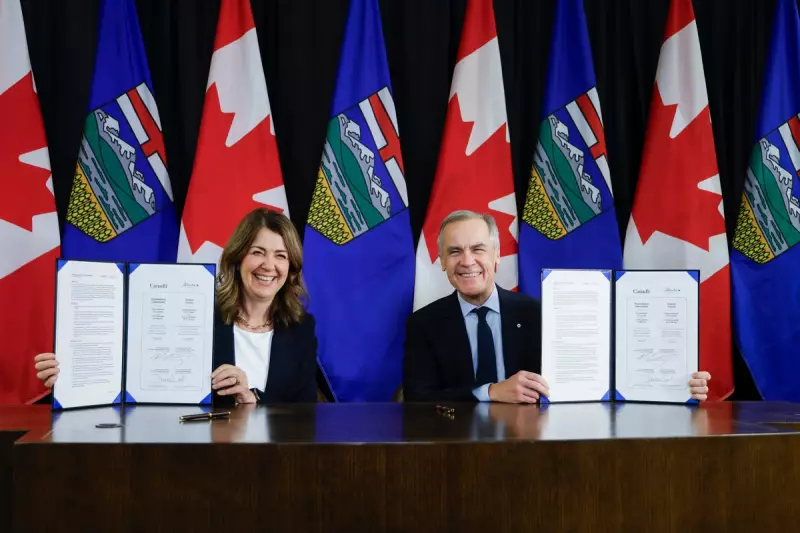
In a significant move to reshape Canada's energy export strategy, Prime Minister Mark Carney and Alberta Premier Danielle Smith have signed a landmark agreement to develop a pipeline to the Pacific Coast, potentially reversing existing oil tanker restrictions.
Breaking Free from Single-Market Dependency
The memorandum of understanding, signed on Thursday 27 November 2025, represents a strategic push to diversify Canada's oil exports beyond the United States. Prime Minister Carney has set an ambitious target to double Canada's non-U.S. exports within the next decade, citing American tariffs as a significant barrier to investment growth.
Alberta Premier Danielle Smith revealed that the agreement could enable the export of more than 1 million barrels per day to primarily Asian markets. "This ensures our province and our country are no longer dependent on just one customer to buy our most valuable resource," Smith emphasised during the announcement.
Navigating Environmental and Political Challenges
The framework includes a crucial provision to adjust the oil tanker ban off parts of the British Columbia coast if the pipeline project proceeds. This concession has already drawn criticism from British Columbia Premier David Eby, who warned that lifting the tanker ban could threaten existing regional development projects and consensus among coastal First Nations.
Carney described the agreement as merely the beginning of a complex process. "We have created some of the necessary conditions for this to happen but there is a lot more work to do," the Prime Minister stated, adding that private sector backing remains essential for the pipeline's realisation.
Learning from Past Pipeline Battles
The agreement calls for Ottawa and Alberta to engage with British Columbia, where fierce opposition to coastal oil tankers persists. This cautious approach reflects lessons from previous pipeline controversies, including the 2016 approval of a pipeline from Alberta's oil sands to the British Columbia coast that required federal government intervention to complete construction amid environmental and indigenous group opposition.
The Northern Gateway project, which would have transported 525,000 barrels daily through the Great Bear Rainforest to Asian markets, was rejected under former Prime Minister Justin Trudeau. The new agreement pairs the pipeline project with proposed carbon capture initiatives, with government officials insisting both projects must advance simultaneously.
The northern Alberta region, containing one of the world's largest oil reserves with approximately 164 billion barrels of proven reserves, stands to benefit significantly from market diversification. The agreement mandates that Ottawa and Alberta collaborate with companies to identify new emissions-reduction projects by April 1, with rollout beginning in 2027.





